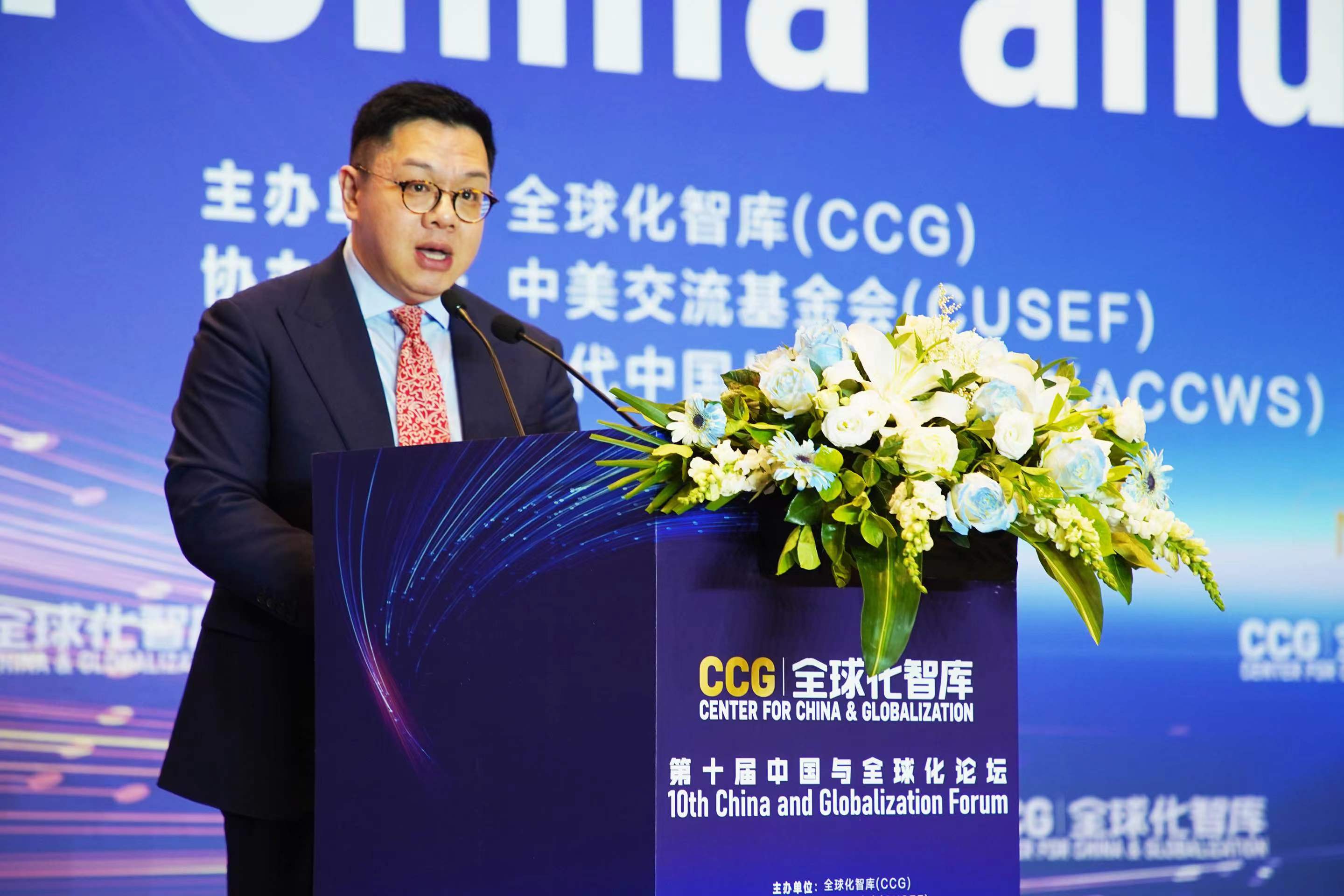Your Excellencies, Ladies and Gentlemen:
We gather today as fellow advocates for global peace and progress, at a time when humanity is facing serious challenges. Trust and collaboration are fraying, precisely when we need to be working together, to combat the shared threats of health emergencies, climate risks, food and water insecurity, economic instability, and more. Forces for deglobalization, decoupling, and disengagement are rising everywhere. Protectionism, nationalist populism, and great power competition threaten to unravel the hard-won gains of globalization, and leave humanity exposed.
The more we each recede and entrench within our borders, and view others as enemies and adversaries rather than fellow humans, the more we create the very reality we say we fear. This is the world we live in today. Yet at the same time, I am optimistic. And here are three reasons why we all should be, based on my insights as President of CUSEF, the China-United States Exchange Foundation.
First: when things seem difficult, taking small steps can make a big difference. Despite the increasingly strained U.S.-China relationship, and the many voices on both sides calling for decoupling, there are enough people in both countries who believe in the value of dialogue and engagement.
At CUSEF, we work year-round to initiate and maintain trust-building measures. For instance, last November, CUSEF supported military-to-military leader talks that resulted in the resumption of military communications, as announced by President Biden and President Xi. Over the years, we have also facilitated the exchange of more than 2,000 American and Chinese students, and this year alone have hosted college delegations from Columbia, Georgetown, Johns Hopkins, and the University of Chicago. I mention this as evidence that real progress is possible when committed partners work together.
Second: we must engage with those who have different views to ours. It’s easy to close ourselves-off, build walls and echo chambers, and engage solely with small circles of like-minded colleagues and friends. This trend began before COVID, spurred by social media, but was exacerbated by the pandemic that left us isolated. The impact of this loss of human connection should not be underestimated, and I believe is a main reason we have seen a sharp rise in global conflict.
Thankfully, we are seeing re-engagement gradually start to return between the U.S. and China, even if overall relations remain strained. Official visits are increasing, academic and scholarly exchanges are resuming, and the frequency of flights is growing. But true trust only occurs if we are willing to listen to each other, understand each other, and find areas of common ground with a diverse array of viewpoints and perspectives. This is what mutual respect really means.
Third: we all have the power, and the responsibility, to be active participants in shaping a better tomorrow. Peace and prosperity is not easy nor is it inevitable. It requires work, lots of work, and often hard work. It requires bold action and occasional leaps of faith. We can all build bridges, but only some can move mountains.
In January, during a visit to The Carter Center in Atlanta, I attended the Ebenezer Baptist Church where Martin Luther King advocated for racial equality, civil rights, and nonviolent resistance to achieve social justice and end segregation against Black Americans. As I listened to the sermon, I thought about Dr. King's legacy, the personal sacrifices he made to fight on behalf of others, and the tremendous impact his actions had for millions of people not just in the U.S., but across the world. As leaders yourselves in government, international organizations, and civil society, every one of us here today has the power to shape the human condition simply by what we do, and through the commitment we make.
I want to end by leaving you with a call to action based on these three insights: as we embark on a weekend of dialogue and discussion, we each have an innate responsibility to act upon what we learn. So as you listen and engage, I urge you to consider what concrete steps you can take, individually and collectively, to transform dialogue into actionable solutions. And ask yourself this question: how can you leverage your unique positions to foster greater understanding and collaboration, especially in times of geopolitical tension?
Our work does not end here. We must leave ready to make tomorrow better than today. I thank you all for being here and for your commitment to achieving an improved humanity.
